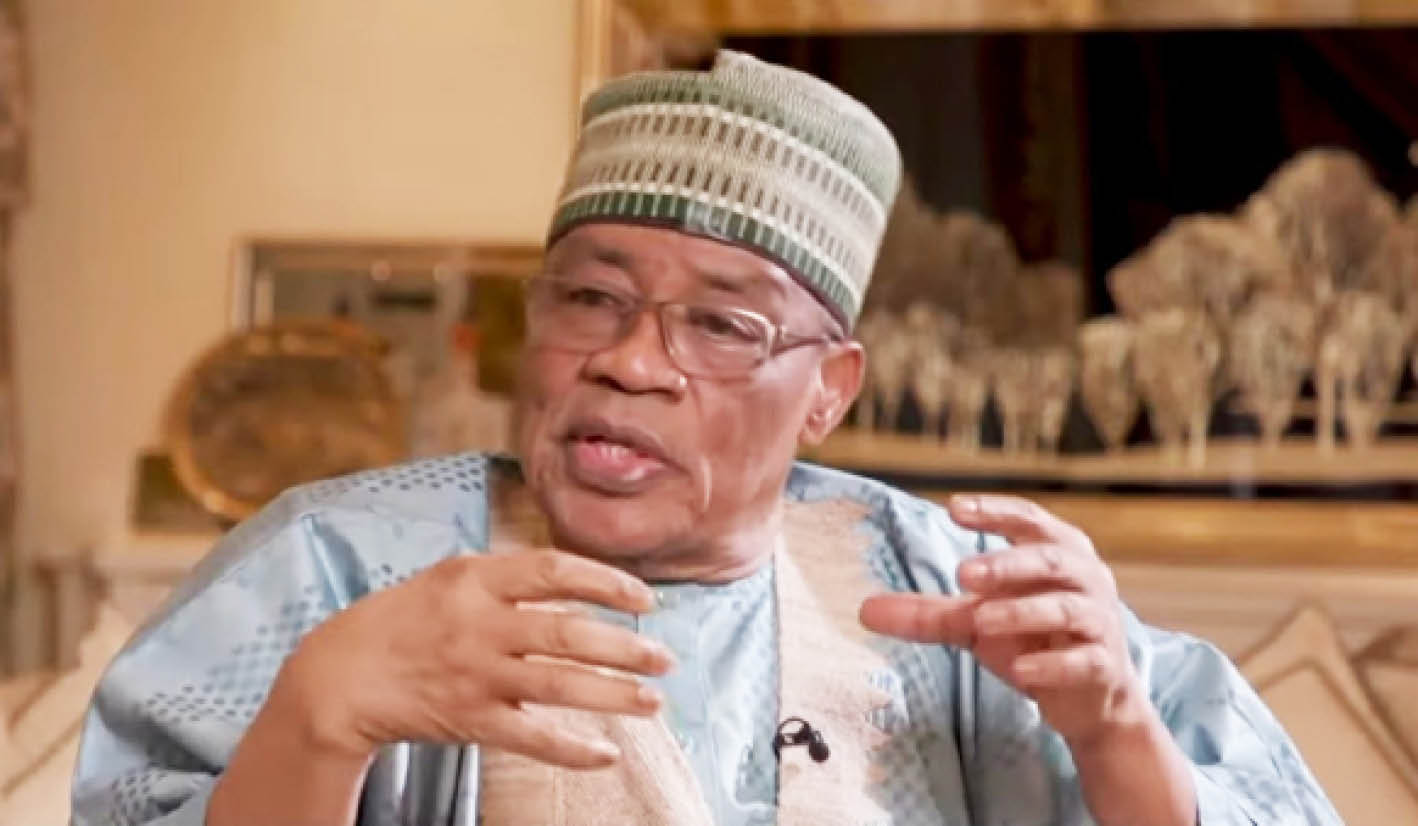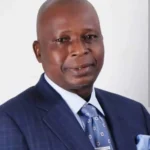A former military president, Ibrahim Badamasi Babaginda, has said that the wave of corruption ravaging the country is worse under the democratic dispensation when compared to the military era.
The former president, who spoke during an interview on the Arise television Friday, monitored by our correspondents, said people who worked under him as military president were ‘saints’ when compared to those currently in power.
- PODCAST: COVID-19: Nigerians In Denial As Number of Cases Skyrockets
- Despite ban, open grazing thrives in FCT
Babangida said that while he moved against a former military governor who embezzled N313,000, those who stole billions of naira were walking freely in the country.
“With current cases of corruption going on across the country, military leaders were saints when compared to democratic leaders.
“You cannot compare what we did with what is on the ground now, in terms of corruption. Corruption is more now. We are saints when compared to what is happening in the democratic era.
“When I was in leadership, I sacked a governor for misappropriating less than N313,000, but today, billions are being stolen and misappropriated. A lot of them are in court but still parade themselves in the streets. So tell me, who is better at fighting corruption?”
‘The next Nigerian president should be in his 60s’
He also ruled out the national leader of the ruling All Progressives Congress (APC), Asiwaju Bola Tinubu and former Vice President Atiku Abubakar from the 2023 presidential race, saying he strongly believed that Nigeria’s next president should be in his 60s. He added that he had at least three people in mind for the presidential seat.
He said, “I have started visualising a good Nigerian leader. That is a person who travels across the country and has a friend virtually everywhere he travels to, and he knows at least one person he can communicate with.
“That is a person who is very versed in economics and is also a good politician who should be able to talk to Nigerians, and so on. I have seen one, two or three of such persons already.”
Atiku, who is 75, will be 77 in 2023, while Tinubu, who marked his 68th birthday in March, would have turned 70 years by the next election.
Although Tinubu and Atiku have not publicly declared their interest in the 2023 race, there are strong indications that both men are interested in the race.
Atiku lost the 2019 presidential election to Buhari, but he has not shown publicly that he is no longer interested.
On his part, Tinubu’s body language has been hinting at the presidency, while his foot soldiers have been going around the country to market him.
‘Why Nigerians should jettison zoning’
Also speaking on zoning and the 2023 presidential election, the former military president said competence and merit should be the consideration for the next president of Nigeria.
He also said the ideal candidate, apart from having the requisite qualifications, must believe in a united Nigeria.
IBB’s assertion is coming at a time agitation for zoning of the presidency to the South has reached a crescendo.
He said, “We have to make a choice. It is either we want to practise democracy the way it should be or we define it in our own whims and caprices.
“If we are going to do it the way it is done all over the world, you allow the process to continue, but it is through the process that you would be able to come up with a candidate that would lead the country.
“His qualifications and belief should be known to Nigerians before he ever throws his hat into the ring, regardless of where he comes from.
“Whether we do it now or not, we would have to do it. A time will come when somebody will emerge from Okpella or somewhere else and one would say, ‘I have heard that name before.’
The former military leader also advocated a two-party system for the country, saying it is the best for Nigeria.
“If you look at the First Republic, we found out that everybody tended to gravitate towards a two-party system, even though there were other parties. So we had no difficulty in insisting that a two-party system was the best thing for us in the country; and it is happening even now. We have over 70 parties, but nobody is talking about them; it is the All Progressives Congress (APC) or Peoples Democratic Party (PDP).
“During Obasanjo’s time, we came up with five parties, all gravitating towards two parties. So Nigeria can do well with a two-party system.”
‘Why I annulled the June 12 presidential election’
On the June 12, 1993 presidential election, IBB said there would have been a bloody coup if it was annulled.
The election was between Bashir Tofa of the National Republican Convention (NRC) and MKO Abiola of the Social Democratic Party (SDP).
Although Abiola was leading, according to the results that trickled in, the exercise was cancelled before an official pronouncement could be made. This triggered a crisis as many took to the streets in protest.
The June 12 presidential election was adjudged to be the freest and fairest in Nigeria’s history.
The acclaimed winner of the election was honoured by President Muhammadu Buhari, who declared June 12 as Democracy Day.
But justifying the annulment of the election, IBB said, “You want me to be honest with you? If it had materialised, there would have been a coup d’etat that would have been violent; that’s all I can confirm. And that could have given room for more instability in the country.”
Nigeria’s anti corruption agencies since 1999
Nigeria has several legislations and agencies fighting corruption before the Fourth Republic such as the Code of Conduct Bureau and Tribunal Act of 1979/1980 during the second Republic.
However, since the return of democracy in 1999, several administrations have initiated methods and mechanisms to tackling corruption. During the tenure of former President Olusegun Obasanjo, the Independent Corrupt Practices and Other Related Offences Commission (ICPC), Economic and Financial Crimes Commission (EFCC), Advance Fee Fraud and Other Related Offences, The Nigeria Accounting Standards Board were established.
While in office, late President Umaru Musa Yar’Adua set up the Fiscal Responsibility Commission, which was set up by the Fiscal Responsibility Act, 2007.
Former President Goodluck Ebele Jonathan was in office between 2010 and 2015 and within this period he established the Fiscal Responsibilities Commission. The legislation against money laundering, Money Laundering (Prohibition) Act was amended in 2012 to widen its scope. He signed the Freedom of Information Act 2011, which has been crucial to the fight against corruption. He also repealed the Nigeria Accounting Standards Board Act established by former President Olusegun Obasanjo and enacted the Financial Reporting Council of Nigeria in 2011 as a replacement. The IPPIS which was initiated by the Yaradua’s administration with a pilot test was fully implemented by former President Jonathan.
President Muhammadu Buhari was elected in 2015, among other reasons, due to his stance on corruption. He campaigned on promises to fight corruption. He has also transmitted a bill to the National Assembly for the establishment of the Proceed of Crime Recovery and Management Agency which would handle recovered loot. President Buhari also implemented the Tresaury Single Account (TSA) to curb corruption in government agencies and parastatals. Also, Bank Verification Number (BVN) was also initiated by President Buhari to reduce illegal banking transactions.
CSOs react
Meanwhile, the country director of CARE International, Dr Hussaini Abdu, said though the former head of state’s position was faulty, corruption under the military rule cannot be compared to that of the civilian administration.
“Whatever it is, military authoritarian rule set the basis for some of the corruption being witnessed under the civilian rule,” Abdu said.
Also, the executive director, Resource Centre for Human Rights and Civic Education (CHRICED), Dr Ibrahim M. Zikirullahi, said corruption under the former military head of state was not only monumental, but the regime laid the grand foundation of corruption that was built upon and nurtured by subsequent regimes.
Ismail Mudashir, Taiwo Adeniyi, Abbas Jimoh (Abuja), Abdullateef Aliyu (Lagos) & Romoke W. Ahmad (Minna)

 Join Daily Trust WhatsApp Community For Quick Access To News and Happenings Around You.
Join Daily Trust WhatsApp Community For Quick Access To News and Happenings Around You.


